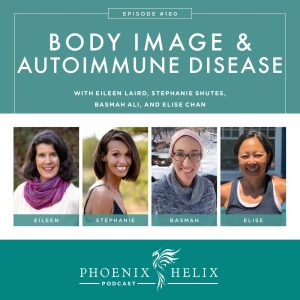With an autoimmune diagnosis, we are told that we have a disease for which there is no cure. It can be shocking and immediately change how we see ourselves. It’s not uncommon to feel betrayed by our bodies. Symptoms can also dramatically change our abilities, impacting careers, hobbies, and roles within families. Many of us go through an identity crisis – no longer feeling like the person we were before. Then there’s the impact of having a visible vs. invisible illness. Some autoimmune diseases change our physical appearance and how others interact with us. Whereas others have symptoms that are hidden, often inspiring disbelief in the pain that can’t be seen. Today, four people with autoimmune disease (including myself) share our experiences with how our body image has changed since diagnosis




